Annecy 2025 - Day 1
Adventures from the first day at Annecy Festival 2025
A quick recap
This is the first post in a series from the Annecy Animation Film Festival 2025 - a week full of amazing films, insane food and a lot of walking.
I’ll be sharing little daily updates on what I’m watching, stuff I get up to, and anything else that stands out.
If you’re planning to go yourself someday, I’ve also written a guide on how to prep for the festival, so do check that out!
Before we get into the films, I just have to talk about arriving in Annecy, because honestly, it never gets old.
You reach the train station, wander through these ridiculously picturesque streets (every corner looks like it’s auditioning for a Disney remake), and you hit the river. Crystal clear, slow-moving, and yet always present.
And then... the lake.
Nothing, and I mean nothing, prepares you for that first glimpse. It’s so absurdly beautiful it feels fake — like someone built and then blew up a Powerade factory next to the shore. We were joking that if you grew up here, your whole sense of beauty would be completely broken. Like, where do you even go from there?
I’ve added a few photos below to rest my case - also because it’s easier than making more Powerade comparisons.
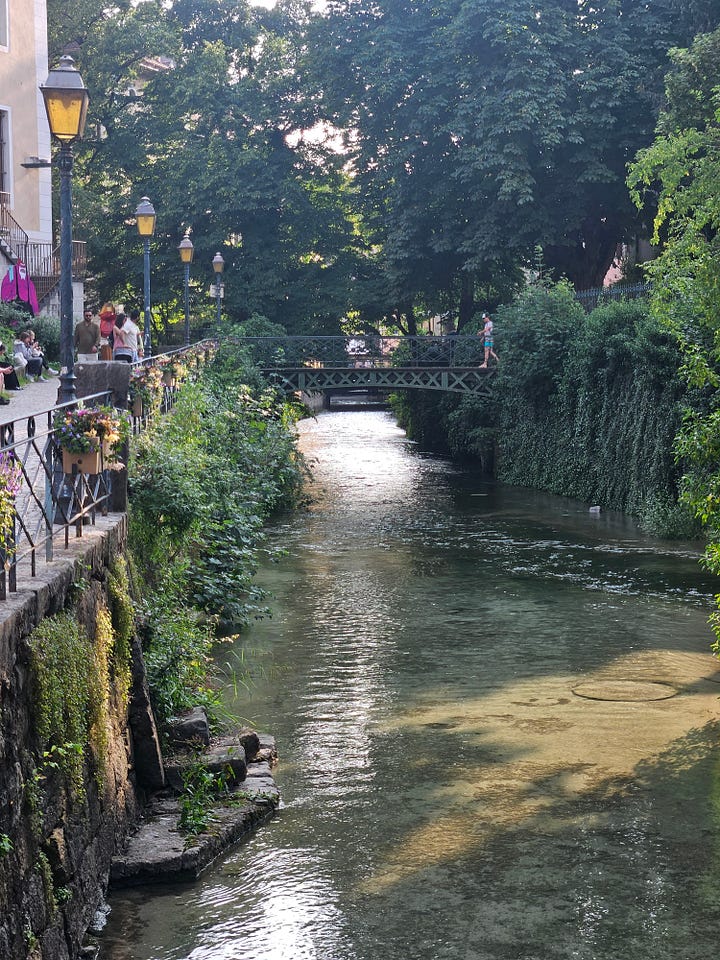
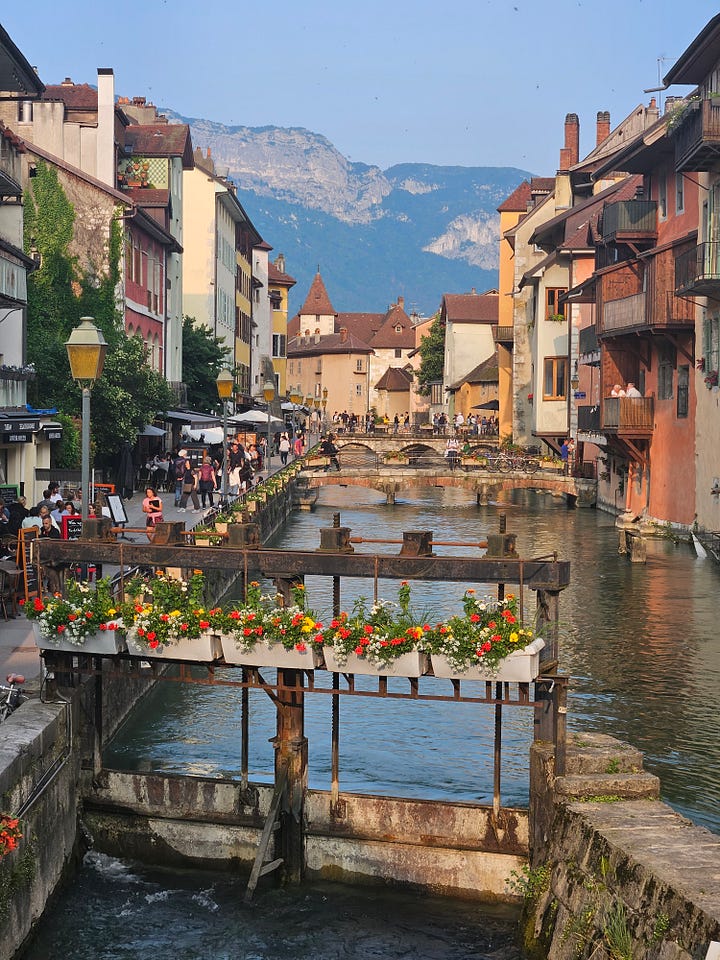
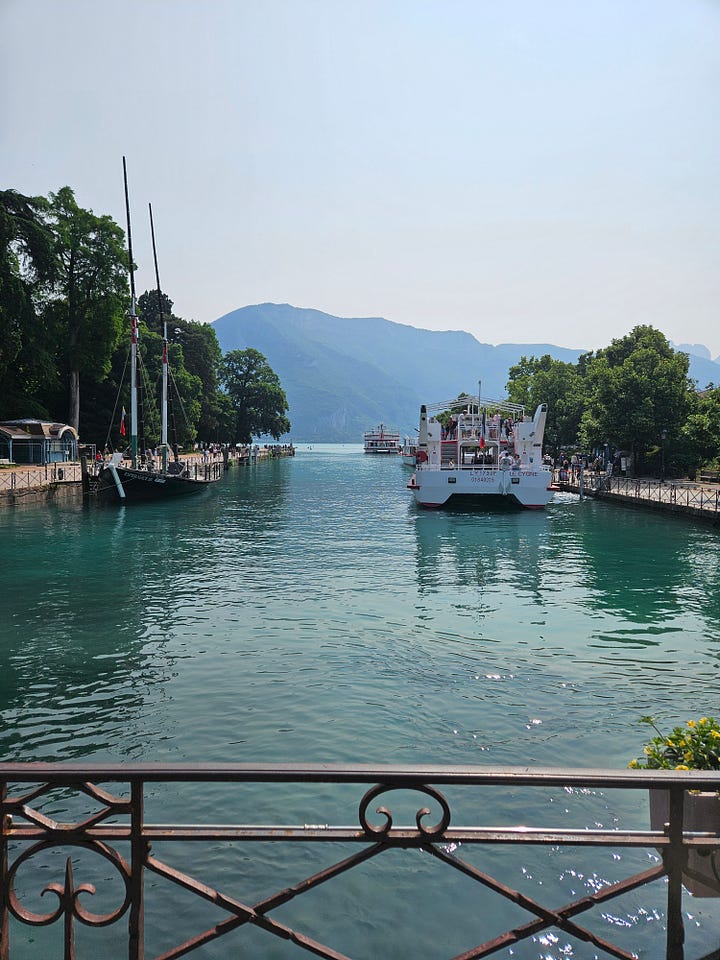
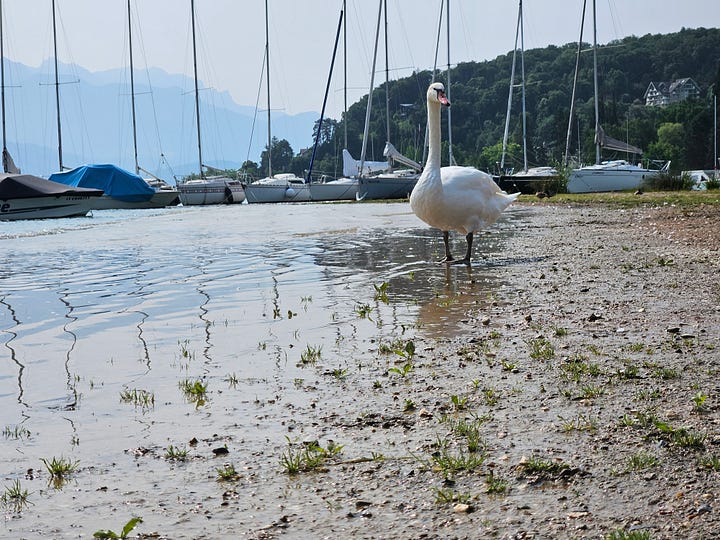
Films on Day 1 (Monday)
Bread zombies, talking ovaries and a retelling of an Orwell classic
Now onto the films — the main reason I’m here.
With our Festival accreditation, we could book two screenings a day. I started with one of my favourite categories: short films, this is because you often see films you’ll never see again, as opposed to Feature Films, which may see a theatrical release. Today, I managed to get a reservation for Short Films Official 6.
For the second slot, I was glad to get a reservation for Animal Farm. It’s one of my favourite books, and with Andy Serkis directing, it was high on my list.
Short Films Official 6
There were 7 short films in this screening. My thoughts on each are below.
Ordinary Life
Ordinary Life is a sensory experience with no dialogue and a minimalist 2D art style. It follows a young woman as she stares into a mushroom, noticing its tiny grooves and ridges — which then leads into a montage of surreal, trance-like scenes set to music that fits perfectly.
The meaning is open to interpretation, but we felt it echoed the experience of psychedelics. The way she becomes hyper-aware of small details - the feeling of her hair, the way sunlight cuts through her skin, her dog’s suddenly menacing teeth, even sushi edging closer to falling off a conveyor belt - all suggests a heightened state of perception.
It felt like a film about slowing down and seeing the world differently. But only the director and team know for sure.
My Brother, My Brother
My Brother, My Brother is a story about loss, following your dreams, and the role of religion in personal identity. It centres on Omar and his twin brother, Wesam.
It’s hard to talk about this one without giving too much away - so I’ll just say it’s worth watching if you get the chance.
What really stood out to me was the visual style. The 2D characters, with bold, expressive colours, are layered over real photographic backgrounds, and the contrast works beautifully.
My Wonderful Life
Ever been so stressed that a quiet hospital room sounds like paradise? Even if it means finding a way to stay there? My Wonderful Life leans into that feeling.
Grace ends up in hospital after an infection, and as she remembers the chaos of her life outside, she starts coming up with increasingly ridiculous ways to extend her stay. The result is a hilarious (and very gory) short with great characters (especially Mako/Momo 🐈) and sharp pacing.
Bonus points for the sprinkling of Singaporean slang - it adds a lot of charm.
Bread Will Walk
Zombies eating humans? Makes sense. That’s the rule. We all know it. But what if humans started eating zombies?
In Bread Will Walk, a strange disease caused by genetically modified bread turns people into… well, bread. And in a world where all other food has gone extinct, these bread-people start to look disturbingly tasty.
The art style is rough and surreal - almost dreamlike. It reminded me of what you might get if you plugged someone’s memories into a machine and asked it to generate images of what it found.
Ovary-Acting
Ovary-Acting tells a story that many women in their 20s and 30s will instantly recognise: the pressure of the “ticking biological clock”.
The title, a great pun, sets the tone. An ovary literally comes to life and bursts into musical numbers, trying to convince the main character to have a baby. It’s funny, clever, and surprisingly heartfelt.
At its core, the film is about choice. It reminds women that they get to decide when, or if, the time is right, and that there’s more to life than just following “mother nature’s clock.”
Thank You Dr. Farsi
In Thank You Dr. Farsi We meet Mino on her 27th birthday, and through her eyes, we experience a observational look at the lives of her friends - each dealing with their own mental health challenges - or at least that’s what first meets the eye. Again, this one is extremely hard to write about without giving away spoilers, so I’ll do what may seem lazy and ask you to watch it yourself.
Signal
I’ve always been fascinated by the Search for Extra-Terrestrial Intelligence (SETI). What must it be like to work there? Would you slowly lose your mind staring at signals all day?
Signal explores that idea — and does it brilliantly. I won’t spoil the details, but what really stands out is the dance choreography. It’s unexpected, so addictive to watch, and holds the entire short together.
Animal Farm
Moving on from the short films, I got the chance to watch a preview of Andy Serkis’s upcoming adaptation of Animal Farm. Before the screening, there was an introduction from the production team and Serkis himself, where he spoke about the long journey the film has taken to make, and how they worked with the Orwell Estate to reinterpret the novel through a modern lens.
I won’t go into specifics or critiques, since this was a preview and things may still change. But it’s worth noting that the story takes quite a different direction from the original novel. Instead of a straightforward modern retelling, it leans into a post-modern, futuristic setting - with high-tech mega farms and what looked like a female Elon Musk–style villain.
The adaptation also introduces a new character not found in the original novel - Lucky - who takes on a central role. He goes through a bit of a redemption arc and ultimately becomes the key figure in bringing peace to the farm. This shift also points to a more hopeful and optimistic ending than Orwell’s original.
Seth Rogen voices Napoleon, who’s portrayed with a slightly more goofy, playful edge compared to the novel’s cold and ruthless version. I’m not entirely sure if that choice works - I found myself sympathising with him a lot more than I ever did while reading the book, which felt a bit at odds with the original tone. Old Major’s absence from the film was also a surprising choice. I’ve always seen him as a central figure in the book, the one who sets everything in motion. Perhaps Serkis wanted to move away from the more direct Marx–Trotsky–Stalin parallels, which have been debated over the years. Focusing instead on the broader theme of oppression might be just as valid - and maybe more resonant for a modern audience.
I’m curious to see what changes make it into the final version of the film and how it’s received once it’s out. Either way, it was a great way to kick off the festival. If you’ve made it to the end of this post, thanks for reading - see you tomorrow!



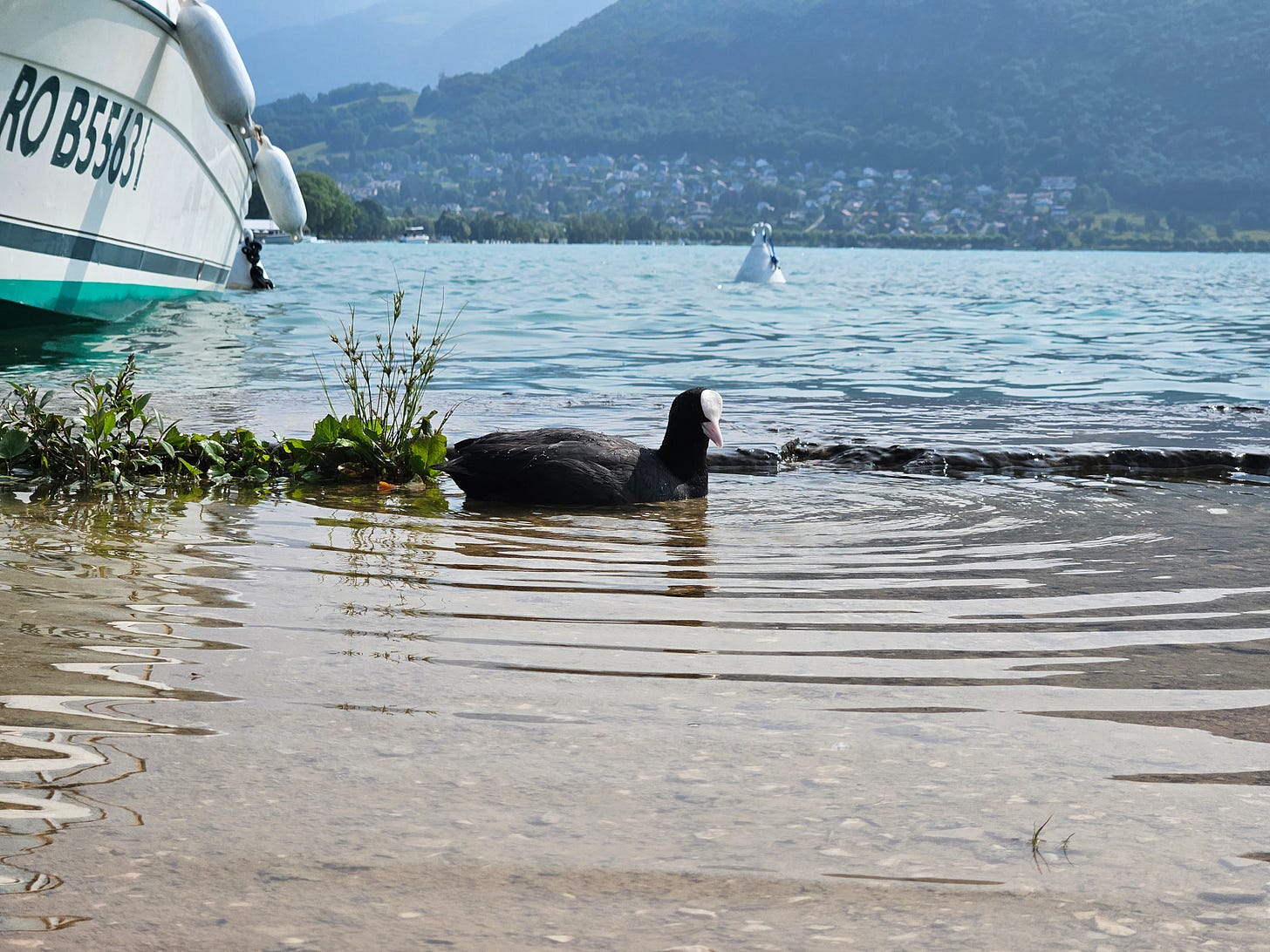

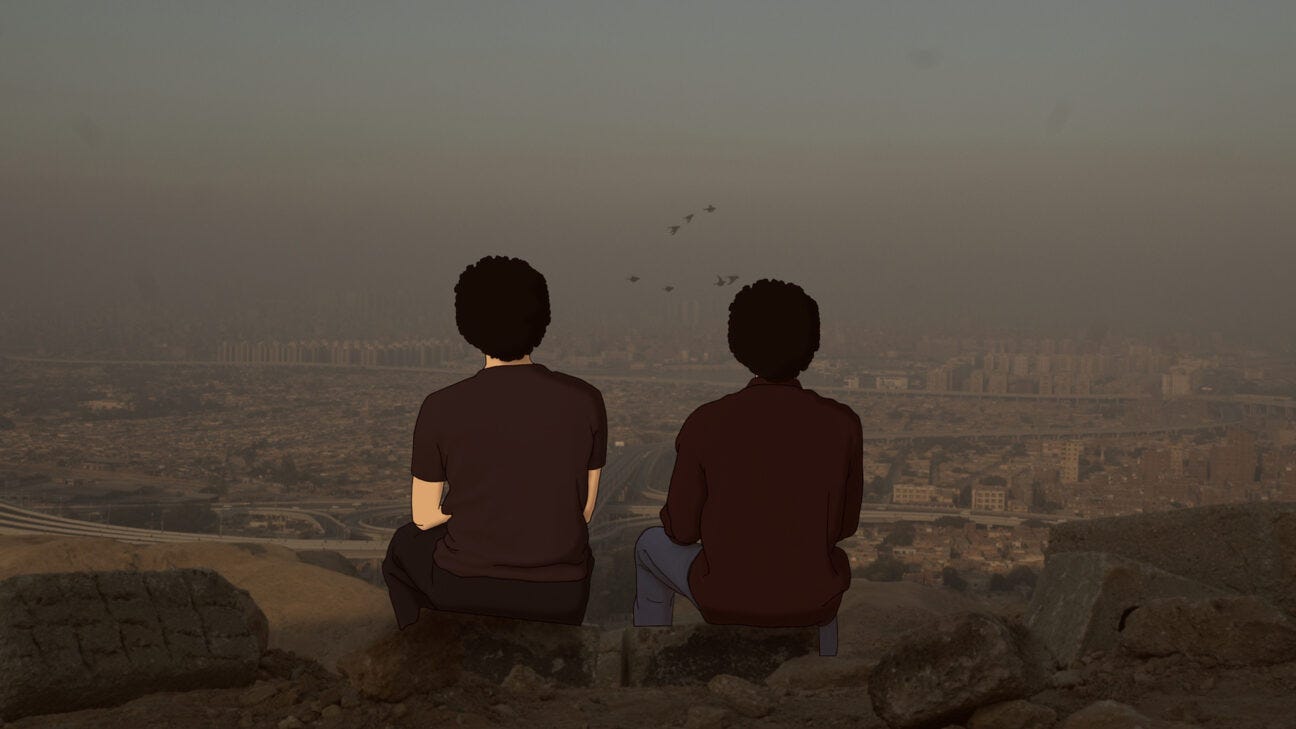
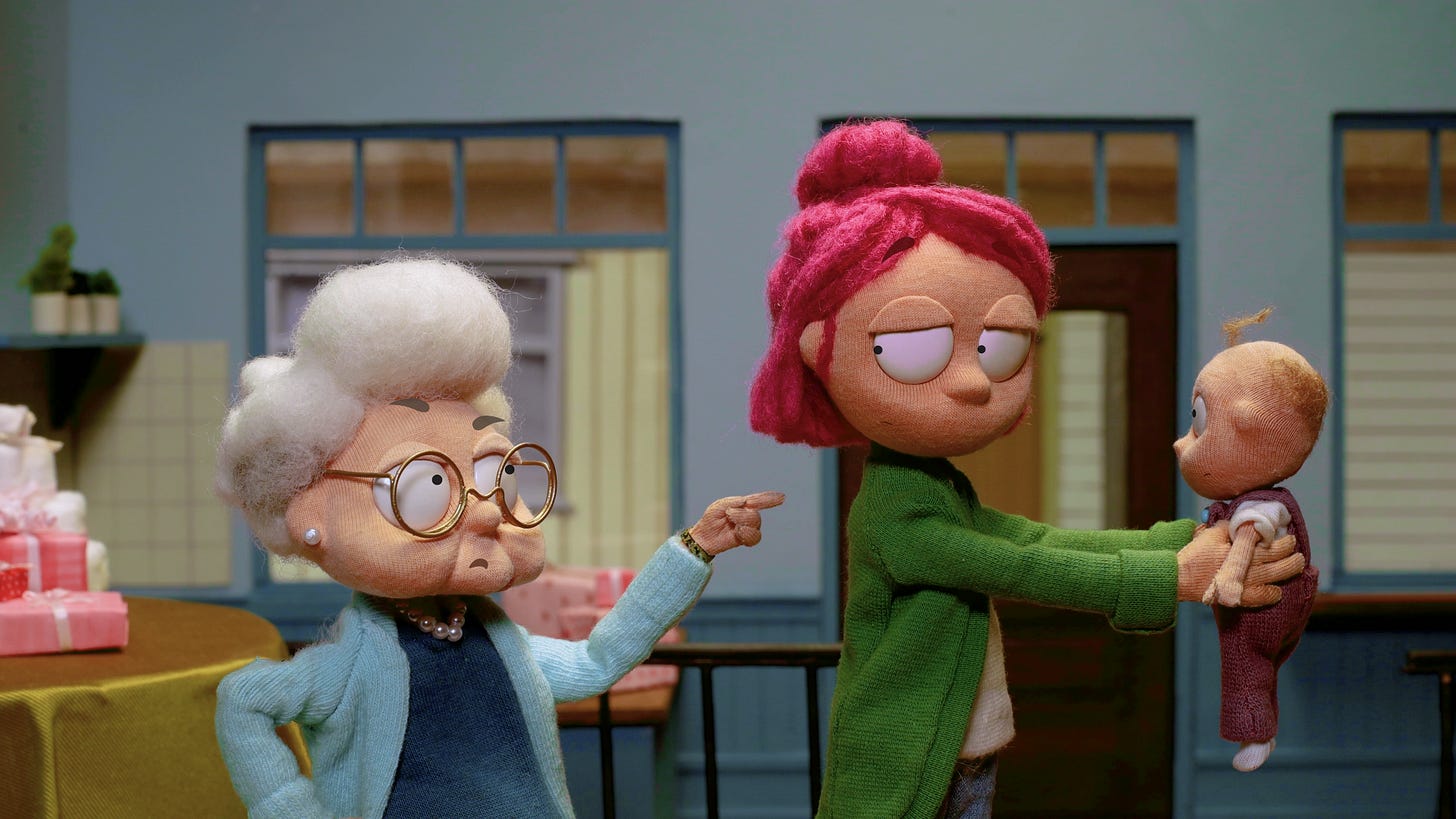

Great article!! Very excited to watch them myself.